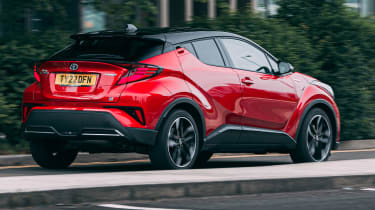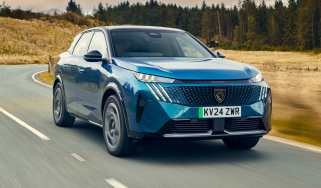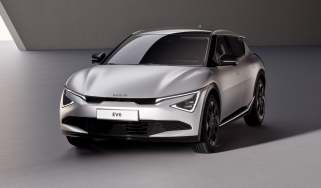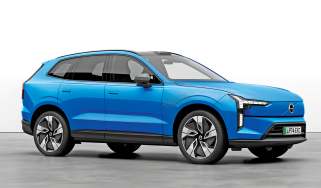Toyota C-HR MPG & CO2 emissions
The Toyota C-HR hybrid delivers impressive fuel economy and CO2 emissions for a petrol-fuelled family SUV, but is some way off plug-in hybrid alternatives in both areas
| Model | Fuel economy | CO2 emissions |
|---|---|---|
| 1.8-litre | 53-58mpg | 110-112g/km |
| 2.0-litre | 50-53mpg | 119-120g/km |
As a "self-charging" hybrid, the Toyota C-HR uses its petrol engine and regenerative brakes to top up a small battery while driving. This means it frequently switches between petrol and electric driving modes, with the transition between the two barely noticeable from behind the wheel.
The 2.0-litre model is more capable than the 1.8-litre version in this respect thanks to its larger electric motor: this can power the car unaided at speeds up to 75mph, which means you can spend a long time on the motorway and still complete around half the journey in zero-emissions mode.
That said, the 1.8-litre model remains the most efficient overall, and a diesel alternative may still be more cost-effective for you if you cover a lot of motorway miles over the course of a year. And for mostly urban driving, a plug-in hybrid will use less fuel again (as long as you can easily charge its battery up overnight).
Toyota C-HR MPG & CO2 emissions
The C-HR has on-paper fuel-economy figures of between 50 and 58mpg, and the time we spent in the 1.8-litre version of the car suggested that you should average around 55mpg in varied driving, which isn't to be sniffed at. Even the 2.0-litre model will break the 50mpg mark on a steady motorway cruise. Around town, the latter will switch into electric mode anywhere between 40 and 60% of the time; Toyota claims it's possible to see highs of 80% in certain situations.
The C-HR's CO2 emissions are reasonable, with the 1.8-litre version achieving 110 to 112g/km and the 2.0-litre model hitting 119 to 120g/km. They make either model an affordable proposition for company-car buyers compared to non-hybrid alternatives that might have lower list prices but higher CO2. However, a plug-in hybrid or pure-electric alternative will have an even lower Benefit-in-Kind (BiK) rating.



